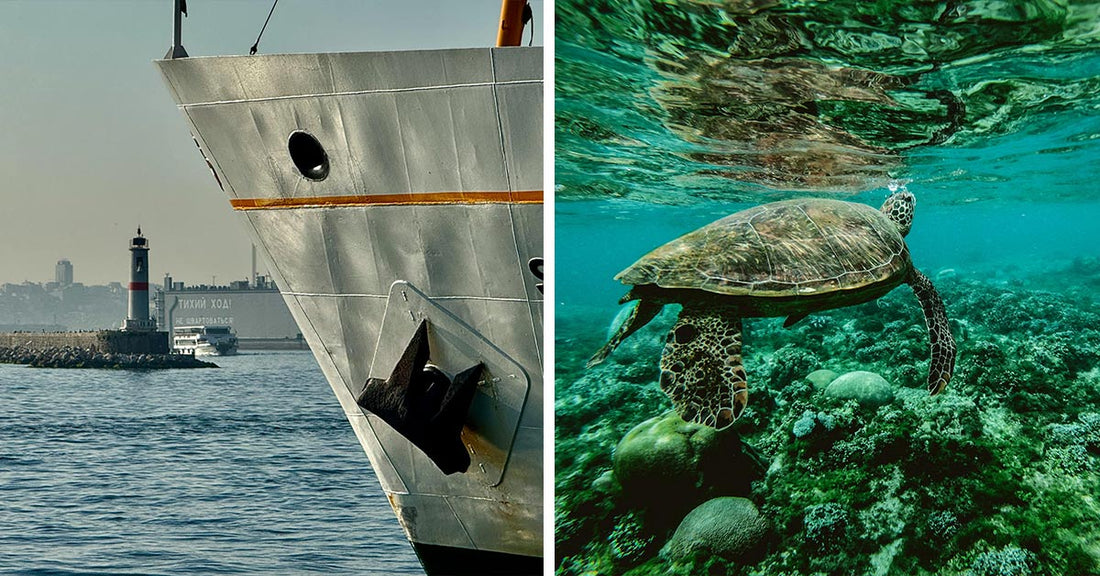Engineer Risks Career to Save Whales from Devastating Port Project
Matthew Russell
Carlos Mallo Molina wasn’t supposed to be an ocean defender. He was a civil engineer, trained to lay foundations and raise infrastructure. But while helping build a highway on the island of Tenerife in Spain’s Canary Islands, he encountered a moral crossroads. The road he was working on wasn’t just a route for cars—it was a step toward a massive recreational port project that would devastate one of Europe’s richest marine habitats.
It was there, on the edge of the Teno-Rasca Marine Protected Area, that everything changed.

Carlos Mallo Molina was once hired to help build a port.
An Engineer Confronts His Impact
The southwest coast of Tenerife teems with life: sea turtles, pilot whales, corals, seagrass beds, and dozens of species rarely seen elsewhere in the Atlantic. But the port planned for Fonsalía, a hub designed to host 400 recreational boats and ferries, threatened to bulldoze a section of the reserve that served as a sanctuary for this biodiversity. Mallo Molina, who spent weekends diving in these waters, realized he was helping destroy the very ecosystem that had inspired his awe.
He left his job. Then he began documenting the marine life he knew so intimately, establishing the nonprofit Innoceana to rally science, education, and activism behind protecting the site. As he explained in a recent interview with Mongabay, what began as a personal crisis became a regional movement to stop the port.

That port would have devastated a marine protected area.
Making the Invisible Visible
Innoceana’s first project was deceptively simple but deeply effective: a virtual reality experience that allowed locals—many of whom had never been diving—to witness the undersea life just off their shores. The strategy worked. Residents saw with new eyes what was at stake. Some were moved. Others, invested in tourism and job creation, resisted. But awareness began to grow.
In tandem, Innoceana partnered with marine biologists to gather ecological data. They recorded green sea turtles, whose largest local population lived in the threatened zone. They documented a resident group of 350 tropical pilot whales, the only whale heritage site in European territorial waters. And they revealed that the government’s environmental impact assessment for the port was more than a decade out of date, missing crucial information about newly endangered species.
This scientific foundation became central to their advocacy.

Green sea turtles feed and nest near the proposed construction site.
Fighting Development with Data—and a Coalition
The campaign to stop the port wasn’t a solo act. Mallo Molina joined a multidisciplinary coalition called Salvar Fonsalía, or “Save Fonsalía,” which brought together lawyers, economists, divers, educators, and citizens. Their grassroots pressure, bolstered by the pandemic-era shift in public values and Europe’s climate emergency declaration, helped move political will. Eventually, the Canary Islands government scrapped the port plan in 2021.
Instead, the site will host a marine conservation and education center—built with EU funding and led by Innoceana—on the very ground once slated for industrial development. As The Guardian reports, this victory didn’t just save a habitat. It redefined what was possible in a place dominated by mass tourism.
Local residents had never seen what lived beneath the surface. Innoceana used virtual reality to reveal marine life to them.
Why the World Took Notice
This transformation is what earned Mallo Molina the 2025 Goldman Environmental Prize, the world’s most prestigious award for grassroots environmental activism. He was one of seven recipients across six continents honored this year, each for bold and locally rooted environmental victories. As Common Dreams reports, his story was celebrated not only for its impact, but for its courage—a former port engineer turning his back on development to fight for the sea.
According to Anadolu Agency, the port’s cancelation marked a turning point in Spain’s approach to coastal protection and grassroots advocacy. What followed was not only conservation, but collaboration: Innoceana now works with the local government to restore vital seagrass beds, educate the public, and promote regenerative tourism in the archipelago.

The canceled port site will now house a marine education center.
A Blueprint for Regeneration
Innoceana’s efforts continue. The organization is leading restoration of underwater seagrass meadows, which produce oxygen, trap carbon, and stabilize sand on the beaches. Half of these ecosystems have disappeared in the past 20 years. Mallo Molina and his team are determined to reverse that trend.
The new ocean education center—set to open by 2027—will be a hub for conservation training and public outreach. It’s the culmination of years of resistance, but more importantly, it’s a symbol of what’s possible when one person refuses to look away.
Mallo Molina says he can’t stay away from the ocean for more than a couple of days. Now, because of his choices, neither will the generations that follow him in Tenerife.


